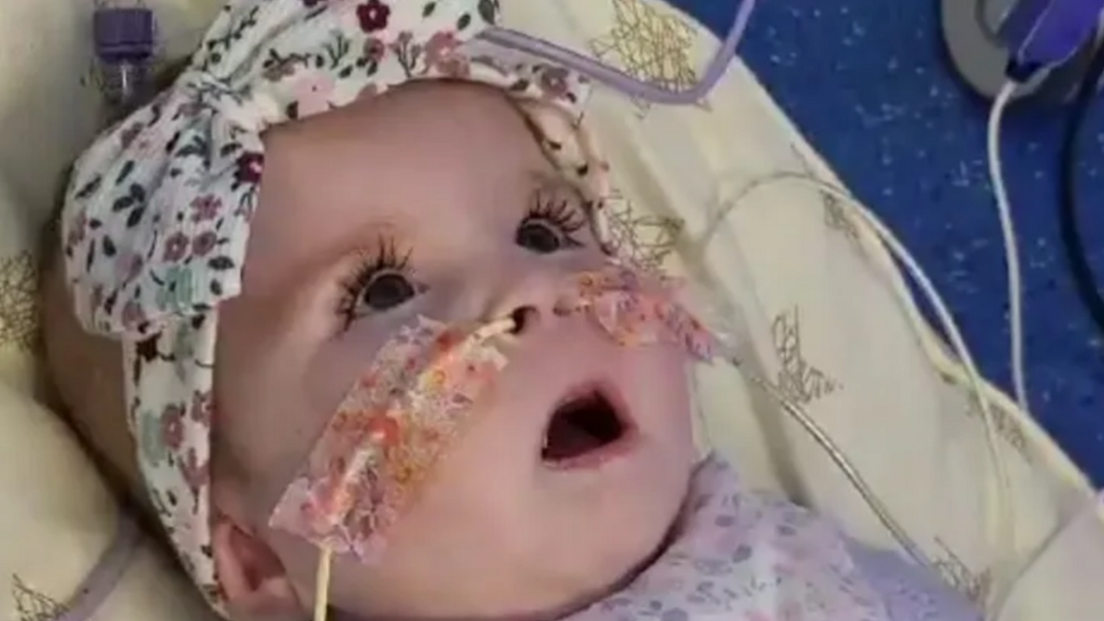Indi Gregory: Judge rules baby's life-support treatment can end
- Published
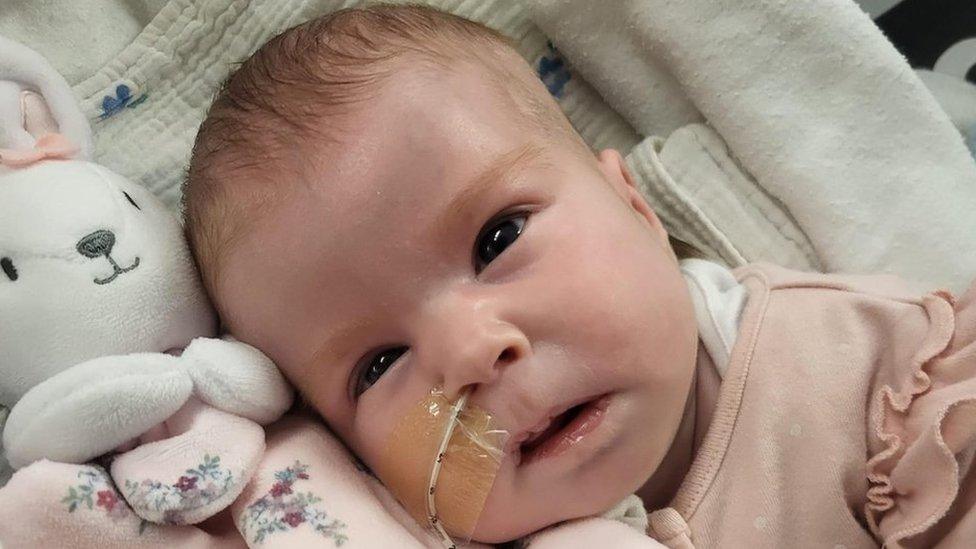
Indi Gregory was born with mitochondrial disease
Doctors can withdraw life support from a critically ill seven-month-old baby, a High Court judge has ruled.
Indi Gregory has mitochondrial disease and medics at Nottingham's Queen's Medical Centre have said they can do no more for her.
Their High Court application to end treatment had been opposed by Indi's parents, from Ilkeston in Derbyshire.
Mr Justice Peel ruled "with a heavy heart" that doctors can stop life support.
Mitochondrial disease prevents cells in the body producing energy and the NHS says the condition is incurable, external.
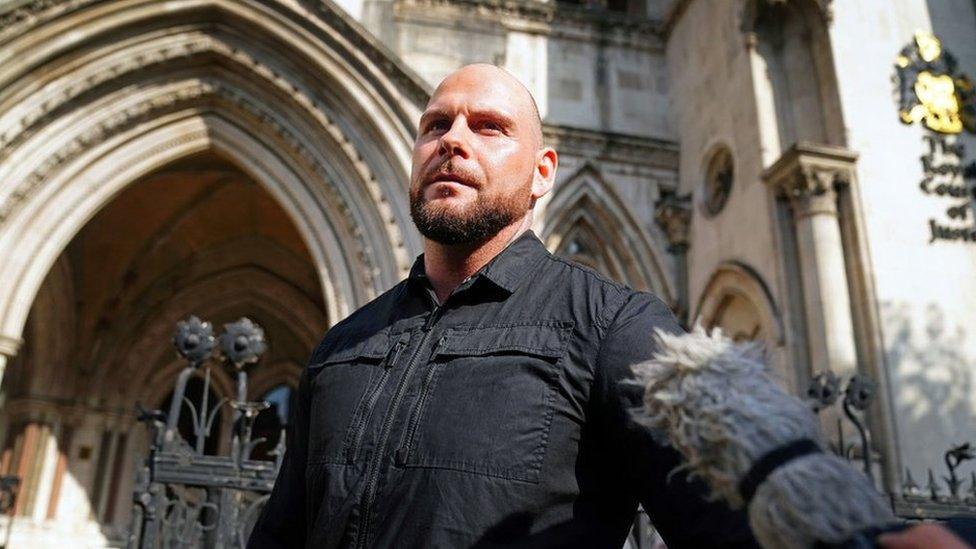
Indi's father Dean Gregory, 37, from Ilkeston in Derbyshire, has responded to the ruling
In his judgment, Mr Justice Peel said the devotion of the family to Indi was "palpable" and their pain "almost unimaginable".
He said: "Nobody could fail to be moved by their concern for their child, and their belief in Indi's resilience, courage and fortitude."
However, he said while the wishes of the family were a powerful consideration, the medical evidence was "unanimous and clear".

The judge's concluding comments in full
"With a heavy heart, I have come to the conclusion that the burdens of invasive treatment outweigh the benefits.
"In short, the significant pain experienced by this lovely little girl is not justified when set against an incurable set of conditions, a very short life span, no prospect of recovery and, at best, minimal engagement with the world around her.
"In my judgment, having weighed up all the competing considerations, her best interests are served by permitting [Nottingham University Hospitals NHS] Trust to withdraw invasive treatment in accordance with the care plan presented.
"That plan envisages weaning her off intubation within one week, and facilitating the use of a bag mask for up to a week after extubation.
"I am quite sure that the Trust will, as they say, do everything they can to care for Indi with compassion, providing her with treatment to alleviate pain, and making her as comfortable as possible.
"That can take place at home or at a hospice, as the parents may elect.
"I therefore grant the application, and make the declarations sought, with sorrow but on the basis that it is clearly in Indi's best interests to do so.
"I know that this will come as a heavy blow to the parents. I know that they love Indi dearly and want the very best for her. I sincerely hope that they will be able to spend as much time as possible with Indi."

Hearings have taken place behind closed doors but journalists have been allowed to attend and name Indi, her parents, and the hospital.
A doctor working at Nottingham University Hospitals NHS Foundation Trust (NUH) had told the judge Indi was dying from the illness.
But her parents, Dean Gregory and Claire Staniforth, argued their daughter had "proved everyone wrong" and "needed more time".
Following the ruling, Mr Gregory said: "We are devastated by the judge's ruling and will be appealing.
"The doctors painted a terribly bleak and negative picture of Indi's condition during court proceedings.
"Indi can definitely experience happiness. She cries like a normal baby.
"We know she is disabled, but you don't just let disabled people die. We just want to give her a chance.
"I and we as a family are prepared to do whatever it takes to fight for the life of our beautiful daughter, Indi."
Dr Keith Girling, medical director at NUH, said the hearing was "challenging for everyone involved and our thoughts are with Indi and her family at this difficult time".
He added: "Our priority will remain to provide Indi specialised care appropriate to her condition, and support her family in every way possible."

Follow BBC East Midlands on Facebook, external, on X, external, or on Instagram, external. Send your story ideas to eastmidsnews@bbc.co.uk, external.
Related topics
- Published9 October 2023
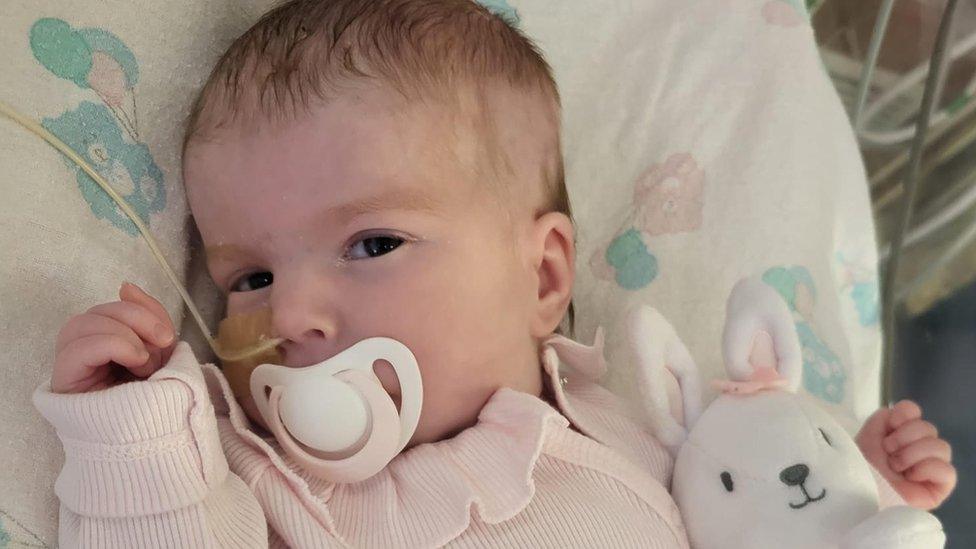
- Published3 October 2023
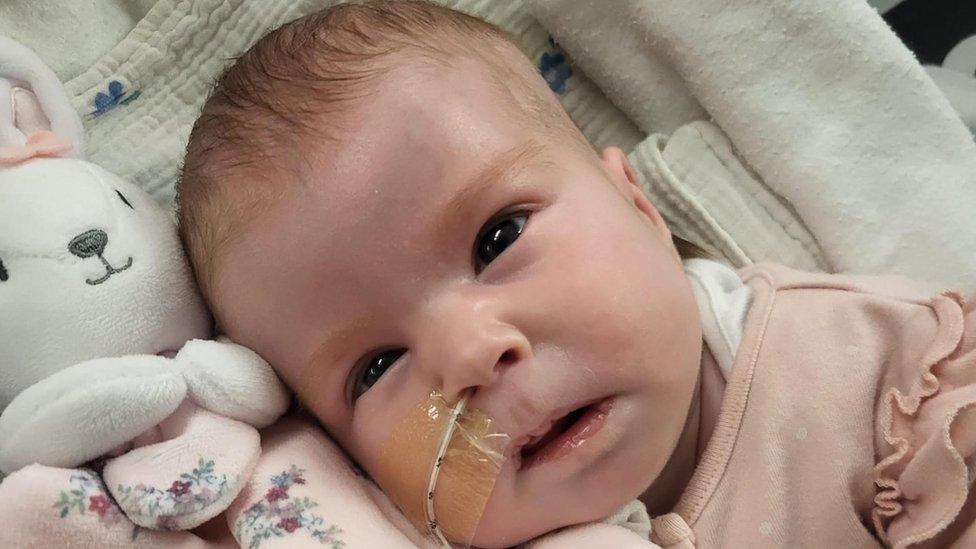
- Published27 September 2023

- Published15 September 2023
